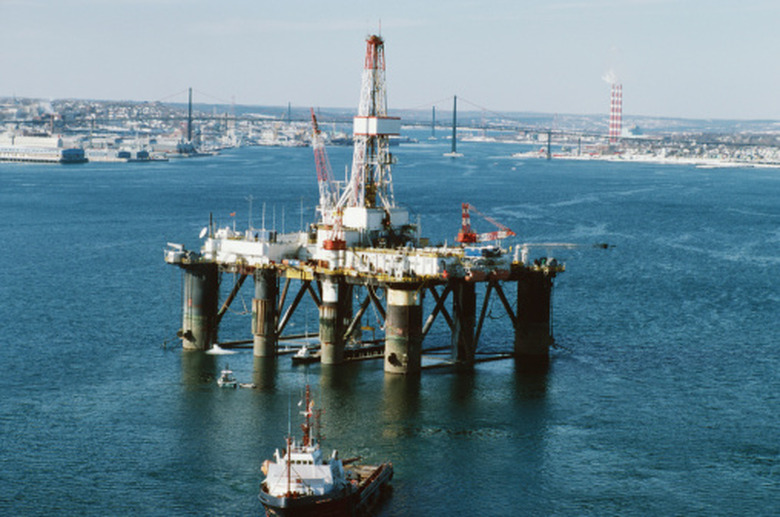Pros & Cons Of Drilling For Oil In The U.S.
Deciding whether or not to drill for oil in the U.S. is a complex issue that sparks heated discussion on both sides of the debate. There are compelling reasons both to drill for oil and refrain from drilling oil in the U.S. People in favor of drilling for oil in the U.S. generally cite economic and political independence as some of the main reasons, while those opposed to drilling for oil in the U.S. generally do so for environmental reasons.
Pro
Pro
Drilling for oil in the U.S. can increase the world's supply of oil and ultimately reduce the price of oil. With a reduction in the price of oil, other markets that oil prices affect can potentially feel a boom. Agriculture, the auto industry and the air travel industry among others can all reap more economic benefits with lower oil prices. Moreover, lower oil prices benefit the average consumer in a number of ways, such as lower gasoline prices and lower food prices.
Pro
Pro
Another advantage of drilling for oil in the U.S. is that it can promote political and ultimately economic independence. If the U.S. relies on importing oil from foreign countries, the U.S. can have little control over the price it must pay for foreign oil. This can force the U.S. to make political concessions to keep the price of oil at an affordable level. Moreover, some oil-producing countries have tenuous governments that may choose not to sell oil to the U.S. This can put a squeeze on the U.S. and force it to seek oil, which is a very limited resource, elsewhere. Drilling for oil in the U.S. can create more jobs in the U.S. and lead to U.S. investment rather than foreign investment.
Con
Con
Drilling for oil is uncertain. In other words, drilling for oil doesn't necessarily mean that we will find a significant amount of oil worth extracting and destroying more of the surrounding environment. Even modern technology is not perfect, and we are taking a big risk in terms of preserving the environment simply to discover and extract more oil from the Earth.
Con
Con
A major drawback for drilling for oil in the U.S. is the threat of a disastrous oil spill. The Exxon Valdez oil spill in 1989 and the BP Deepwater Horizon oil spill in 2010 are two prime examples of the ecological damage that can occur from an oil spill. The environmental impact of both oil spills, and especially the BP oil spill, are difficult to quantify, and we continue to learn the damage they have caused. Not only does an oil spill damage the environment, but it can also cause the loss of human life.
Cite This Article
MLA
Mack, John. "Pros & Cons Of Drilling For Oil In The U.S." sciencing.com, https://www.sciencing.com/pros-cons-of-drilling-for-oil-in-the-us-13657721/. 26 September 2017.
APA
Mack, John. (2017, September 26). Pros & Cons Of Drilling For Oil In The U.S.. sciencing.com. Retrieved from https://www.sciencing.com/pros-cons-of-drilling-for-oil-in-the-us-13657721/
Chicago
Mack, John. Pros & Cons Of Drilling For Oil In The U.S. last modified March 24, 2022. https://www.sciencing.com/pros-cons-of-drilling-for-oil-in-the-us-13657721/
